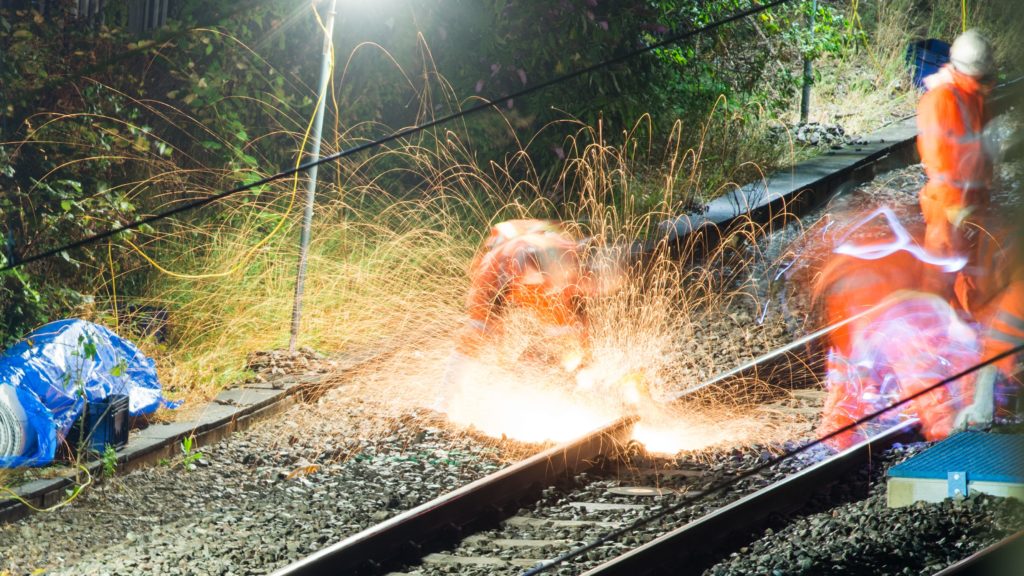Sectors - Civil
UK Rail Faces Skills Shortage by 2025

New research from City & Guilds and the National Skills Academy for Rail (NSAR) has shown that skills shortages are set to escalate significantly in the sector within the next five years. The Back on Track report includes findings from research undertaken by YouGov and data from NSAR on 242,000 workers within the rail industry.
With major rail infrastructure projects set to be announced as part of the National Infrastructure review, the report reveals there is potential for any new rail infrastructure to create a new lease of life for the UK economy through new jobs and economic growth.
However, it also shows there are some systematic issues in the industry’s talent and skills pipeline. This has created a shortage of trained and talented employees, when the industry needs them most. The industry has made progress in addressing these issues, but greater industry collaborations is needed in order to fix them in time to meet this additional demand.
The research also found that the rail sector is set to lose some skilled workers over the next few years, as 28% of workers in the industry are over 50. Brexit is also set to increase this issue, due to a reduction in access to overseas workers.
As a result of this talent and skills shortfall coinciding with new rail projects that will heighten the demand for skills, between 7,000 and 12,000 additional people will be required every year by the industry over the next five to ten years – up to 120,000 people in total. And with modelling showing peak demand around 2025, people must be recruited now to equip them with the relevant skills and experience to meet future demand.
But, as highlighted by in the new report, a lack of upskilling opportunities and perceived reputational problems mean that the industry continues to struggle to attract and train candidates, with just a third (32%) of respondents saying they would consider a career in the rail sector. This is particularly acute amongst women, young adults and people from BAME backgrounds:
- Just 16% of the current rail workforce is female and only 24% of women would consider a career in rail, compared to 41% of men
- 26% of 18-24-year olds say they would consider a career in rail, compared to 39% of 35-44-year olds
- 27% of BAME people would consider working in rail, compared to 32% of white people.
Martin Hottass, Managing Director – Technical Training at City & Guilds Group, commented: “The UK rail industry is on the cusp of leading a once-in-a-generation infrastructure revolution, with the potential to create thousands of high quality jobs across the country at a time when they are needed most. However, the dual blow of Brexit and a retirement cliff edge, in addition to systemic issues around growing and retaining skills, means unless Government, employers and industries work together to urgently addresses these issues, they risk scuppering this golden opportunity. It’s clear that greater collaboration will be key to increasing awareness of opportunities in the sector and ensuring that rail projects are committed to creating lifelong learning opportunities. “
Neil Robertson, CEO at the National Skills Academy for Rail, commented: “The rail industry’s lack of diversity and perception by younger people, are well known, but less well understood – and while many people in the industry are already working to recruit and upskill a more diverse workforce, it’s by shedding a light on these issues that we can understand the solutions that will truly make an impact. Now, as we look to invest in new talent in to fill future skills gaps in the rail industry, it’s also clear that we can use this opportunity improve social mobility across the UK. By hiring people from different backgrounds and regions and providing them with quality skills and career progression, we can ensure that these infrastructure projects not only create jobs, but also promote positive socio-economic change.”
City & Guilds and NSAR are calling on the rail sector and Government to collaborate and take a joined-up approach to urgently gear up the industry’s skills and talent pipelines, before it’s too late.
The seven key recommendations outlined in the report are:
- Build lifelong learning commitments into project specifications for national rail projects – starting with apprenticeships
- Transform the rail industry into a career destination, especially for young people
- Develop strong career paths to attract and retain talent and maximise productivity
- Make mid-career entry to the industry and skills-transfer more frictionless
- Build greater participation at a local / regional level
- Government and relevant partners should consider a perception and awareness raising campaign
- Utilise the Green agenda to attract a new generation of people to the industry
If you would like to read more like this, then please click here
Related Articles
Related Articles
- Construction Reforms Must Be Accelerated
5 Nov 21
Government and industry must work together to spur an improvement in construction buying habits if
- Sky is the Limit for Createmaster
3 Nov 21
Createmaster has won the contract to provide all handover information for Sky Studios Elstree, in
- On-Site Sustainability & Innovation Hub Revealed
2 Nov 21
Following on from the launch of the on-site Training Centre at Mercia Park, Winvic Construction





